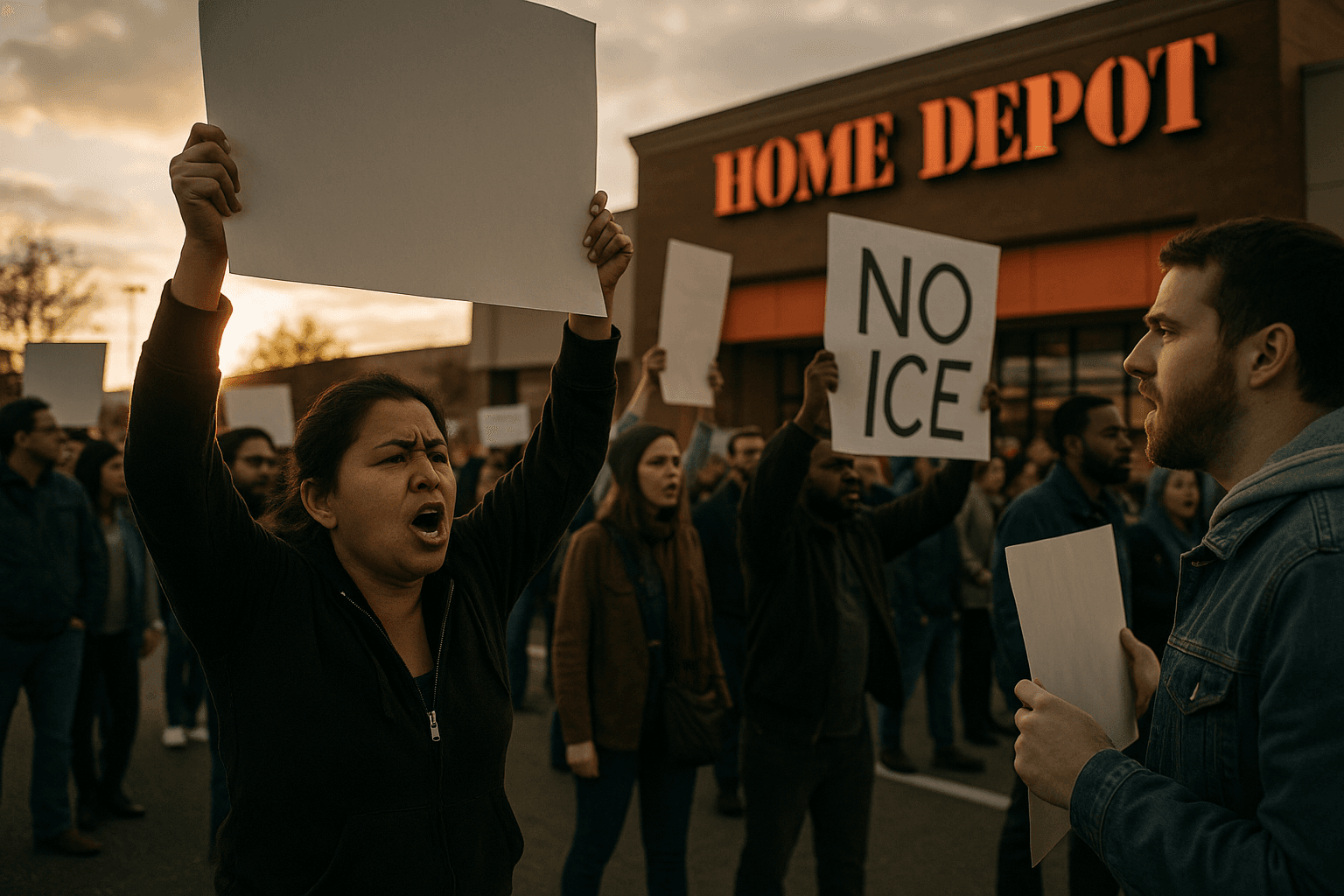Immigration Raids Prompt Protests Outside Charlotte Home Depot
A large immigration enforcement operation in North Carolina on November 19 prompted protests at multiple locations, including roughly 100 people outside a Charlotte Home Depot. The demonstrations highlight growing local activism and signal increased scrutiny for employees and managers over store parking lots being used by day laborers, with safety, legal, and public relations implications.

Local workers and managers at a Charlotte Home Depot found themselves at the center of community protests after a broad immigration enforcement operation in North Carolina on November 19. An Associated Press dispatch reported that the crackdown, which by that date had resulted in more than 250 arrests statewide, prompted demonstrations in several communities, including about 100 people gathered outside the Home Depot store. Photographs accompanying the coverage showed organizers marching with signs near the store parking lot.
The visible protests underscored how retail parking lots have become focal points in broader debates about immigration enforcement. For Home Depot employees and supervisors, the events raised immediate operational concerns. Store parking areas that once served as informal gathering places for day laborers can now attract protesters, media attention, and increased interactions with law enforcement, creating new safety and customer service challenges for frontline staff.
Managers face decisions about how to respond while balancing store access, community relations, and company policies on loitering and solicitation. The protests also carry legal and public relations dimensions, since parking lots are semi public spaces where the rights of customers and community members must be weighed against store rules and local ordinances. Stores may see heightened calls from neighborhood residents and local officials for clearer enforcement of parking lot policies, and employees may encounter more intense scrutiny when they ask people to move along or intervene in tense situations.

The national context of the enforcement operation amplified local reactions. Coverage placed the Charlotte demonstration alongside protests elsewhere in the state, reflecting a broader community pushback against the raids. That context suggests the issue could persist beyond a single day, leading to recurring demonstrations or increased organizing around store locations used by day laborers.
For Home Depot staff, the short term priorities will likely be ensuring safety, coordinating with corporate and local law enforcement if necessary, and communicating clearly with customers and the community. Longer term, stores may need to reassess how parking lots are managed and consider training and policies that help employees navigate protests, media attention, and the complex local dynamics that follow large scale enforcement actions.


